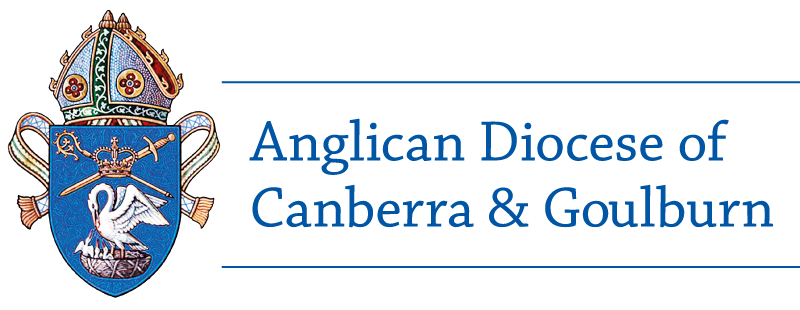In the month of May our diocese faces two events that have the potential to challenge our unity as God’s people in this diocese – and in fact, in the Anglican Communion in Australia.
The first is an election. All elections tend to bring out our differences, creating the possibility of ill feeling and disunity in the unwary church. This election, perhaps more than others, has the potential to divide us, as we emerge from the pandemic and count the financial cost to our nation. There are vastly differing opinions as to which party will best manage our financial resources and bring us back to stability.
The second is General Synod. From the 8th-13th of May, representatives from Anglican Dioceses across Australia will be gathering for this national synod in the Gold Coast. It is a full and somewhat fraught agenda. Among the agenda items are issues on which there are polarised opinions – such as same sex marriage. These opinions are deeply and passionately held, each side believing they are right and ‘the other side’ is wrong.
This General Synod, more than past synods, does not bode well for the unity of the Anglican Church in Australia. There are murmurings of schism and the murmurings are not unfounded. Parts of the Anglican Communion in the USA, Canada and Africa have already gone in this direction, and the potential for a similar divide hangs like a spectre over the Australian church.
We’re not unique in these oh-so-human struggles. The apostle Paul had to deal with them as well in the early church. The church in Crete was a case in point. Culturally, Cretans were a difficult people – turbulent and quarrelsome and impatient with all authority. In particular, they had a problem with false teachers, which was causing significant disunity amongst the believers.
Titus was leading this difficult church in Crete so Paul wrote to him with advice. There is much in Paul’s letter to Titus which would resonate with the Anglican Church at this time.
In the letter, Paul speaks about holiness in the context of a Christian’s civic responsibility, and then moves on to the particular issue of disunity brought about by false teachers that was plaguing the young church.
Talking about the believers’ action towards the government, Paul says in 3:1, ‘Remind them to be subject to rulers and authorities, to be obedient, to be ready for every good work’.
Paul’s strategy was for the believers to set an example of good citizenship, so the young church would not be drawn into political agitation. This would be contrary to the way most Cretans approached life, and would set the Christians apart, allowing their ‘light to shine’.
Then in v2, Paul speaks about the believers’ attitude to the government – so often reflected in conversation. Paul exhorted the believers ‘to speak evil of no one, to avoid quarrelling, to be gentle, and to show every courtesy to everyone’. They were to reign in any tendency to be slanderous and argumentative over political issues, they were to avoid stirring people up, and to be deliberately courteous and reasonable towards one another – even those they disagreed with.
In an environment where everyone else was arguing about politics, taking sides and being aggressive towards one’s opponents, it would have been a revolutionary concept for these new Christians to realise that Jesus called them to live differently.
This is sound advice for us as we move towards an election which is already looking rather tense.
What about the false teachers? Above all else, these false teachers had the ability to bring out the worst in the believers. They were disagreeing, quarrelling, and dividing over things that didn’t really matter, according to Paul.
Unfortunately, whenever there is conflict over beliefs, it is precisely because people feel their beliefs do matter, that issues become so difficult to deal with.
Interestingly, in this passage, Paul did not concentrate on the rightness or wrongness of the beliefs in question, although he writes often in other places about the importance of holding fast to the truth of the Gospel. His focus in this instance was on the disunity that came about as a result of the conflict.
He says, ‘After a first and second admonition, have nothing more to do with anyone who causes divisions, since you know that such a person is perverted and sinful, being self-condemned’.
Disunity in the church has the power to subvert the message of the Gospel more than any other issue. We know so well Jesus’ words on the subject: ‘By this shall everyone know that you are my disciples – that you have love for one another.’
In John 17:22-23, we read Jesus’ prayer that his followers would be one, as he and his Father were one, and the reason was so that ‘the world may know that you have sent me and have loved them even as you have loved me’.
- Please pray for the Anglican Church as we approach the election, that we as God’s people will be courteous in listening to one another’s opinions and beliefs, without allowing ill feeling or division to emerge.
- And please pray particularly for members of General Synod as they discuss agenda items which will trigger deeply held beliefs and feelings. Pray for a willingness to listen and really hear each other; pray for a deep respect for the unity of the Church and pray for a revelation of the importance to Jesus of the unity of his church and the power of the church’s witness as we live together in love.
The Anglican Communion has the capacity to be loving and accepting of a wide range of Christian beliefs and practice. May we not allow ourselves to be derailed by our need to be right, but to hold fast to Christ’s plea for unity in his Church.
Psalm 133:1
How very good and pleasant it is when kindred live together in unity!

